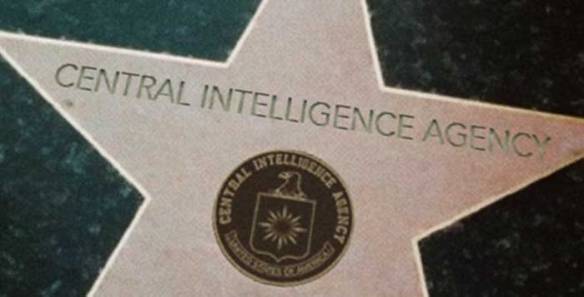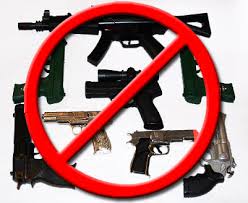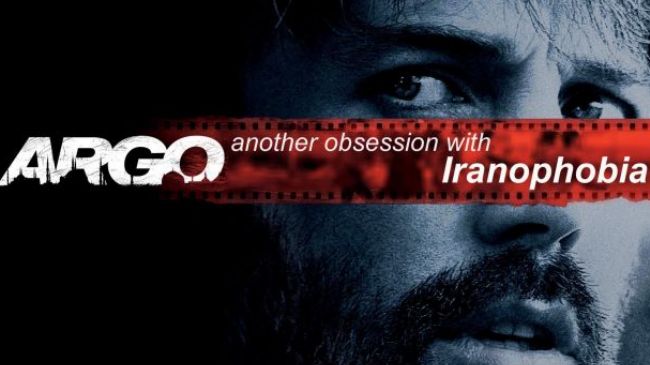(Press TV) -The granting of the Best Picture Oscar to the Iranophobic movie Argo has long been foreseeable as the Machiavellian maneuvering of Hollywood propaganda harbors a much more elaborate imperialistic scheme, political analysts say.
“I put my money on this film to win the Best Picture Oscar (even though there is nothing remotely “best” about it) especially if Obama can pull off winning the Presidential election,” wrote cultural critic Kim Nicolini in an article published in October 2012.
“Argo, above all else, is a piece of conservative liberal propaganda created by Hollywood to support the Obama administration’s conservative liberal politics as we move toward the Presidential election,” she said before Obama was re-elected for the second term.
“It also primes the war wheels for an American-supported Israeli attack on Iran, so that Leftists can feel okay about the war when they cast their vote for Obama in November (2012),” the critic pointed out.
At the 85th edition of Academy Awards at the Dolby Theatre in Hollywood, California, on Sunday, Michelle Obama, the US First Lady, announced Argo as winner of the Best Picture Oscar, live from the White House.
The thriller directed by US filmmaker Ben Affleck is loosely based on the allegedly historical account by former CIA agent Tony Mendez about the rescue of six American diplomats during the takeover of the US Embassy in Tehran after Iran’s 1979 Islamic Revolution.
The revolutionary Iranian university students who took over the US Embassy believed that the embassy had turned into a den of espionage which aimed to overthrow the nascent Islamic Republic establishment.
Argo only tells the rescue operation of the six Americans from the Canadian Embassy in Iran, with no mentioning of the 53 Americans who spent 444 days in the US Embassy.
Nicolini lashed out at Argo for completely neglecting to provide the Iranian’s side of the story, noting, “The film is a sanitized version of the events.”
She argued that “there is nothing authentic about the film’s manipulation of historical events,” and described the movie as “pure political propaganda.”
“Given the vast number of people who have died in the Middle East (Americans, Iranians, Iraqis, Afghanis, etc.), why should we give so much attention to 6 white American diplomats who were saved by Hollywood and the CIA? What about all the other people from so many cultural demographics who have and are continuing to be massacred, murdered and tortured daily?” the critic questioned.
One of the most disputed aspect of Argo’s version of events has to do with Canada’s role in the escape, as the film is considered to be a very inaccurate dramatization of a purported joint CIA-Canadian secret operation.
Former Canadian Ambassador to Iran Ken Taylor has heavily criticized the movie, saying, “The amusing side is the script writer (Chris Terrio) in Hollywood had no idea what he’s talking about.”
He said Argo downplays the actual extent of the Canadian involvement which was considerable.
Taylor criticized Argo for incorporating a myriad of creative liberties that included the “black and white” portrayal of Iranian people and fabricated scenes, adding that Argo “characterizes people in a way that isn’t quite right.”
The former Canadian envoy argued that Argo didn’t portray “a more conventional side,” and “a more hospitable side” of the Iranian society as well, an “intent that they were looking for some degree of justice.”
Political analysts say Argo unmasks the elaborate US scheme to employ every medium in its propaganda apparatus to incite Iranophobia across the globe.
“Argo is an arrant instance of Hollywoodism. In point of fact, it is yet another attempt to foment Iranophobia not only in the USA but across the world as well,” Iranian academic Dr. Ismail Salami wrote in an article on Press TV website in November 2012.
“In recent years, Iranophobia has come to encompass a wider scope of media including cinema which is incontestably capable of exercising a more powerful effect on manipulating the audience,” he said.
The analyst also lashed out at Argo’s director for portraying a “stereotyped and caricatured view” of the Iranian society and noted that Affleck has consciously sought to ridicule “the very customs and traditions” of Iran.
In an interview with Press TV, top Iranian official Masoumeh Ebtekar who was a spokeswoman of the students who took over the US Embassy in 1979, says she initially thought that the film would be a balanced representation of events, but after seeing the film, she says it does not tell the story of the takeover as it actually happened.
“The group who took over the American Embassy were a group of young, very orderly and quite calm men and women … The scenes that you see in Argo are totally incorrect,” Ebtekar said.
Iranian film critic Masoud Foroutan told Press TV that Argo was “politically-motivated,” noting, “The making of the film from the technical aspect is ok but the story is not authentic. The story is custom-made and you could see where it would end up. The film was a politically-motivated one.”
On the 19th of January 1981, the Algiers Accords was signed by the United States and Iran which secured the release of the American diplomats. A day later, the 53 Americans were released in Tehran and minutes later former US President Ronald Reagan was sworn into office.
Meanwhile, political observers contend that the US has always sought to keep the Algiers Accords hidden from the general public and it comes as no surprise as Argo makes no mention of the accords either.





